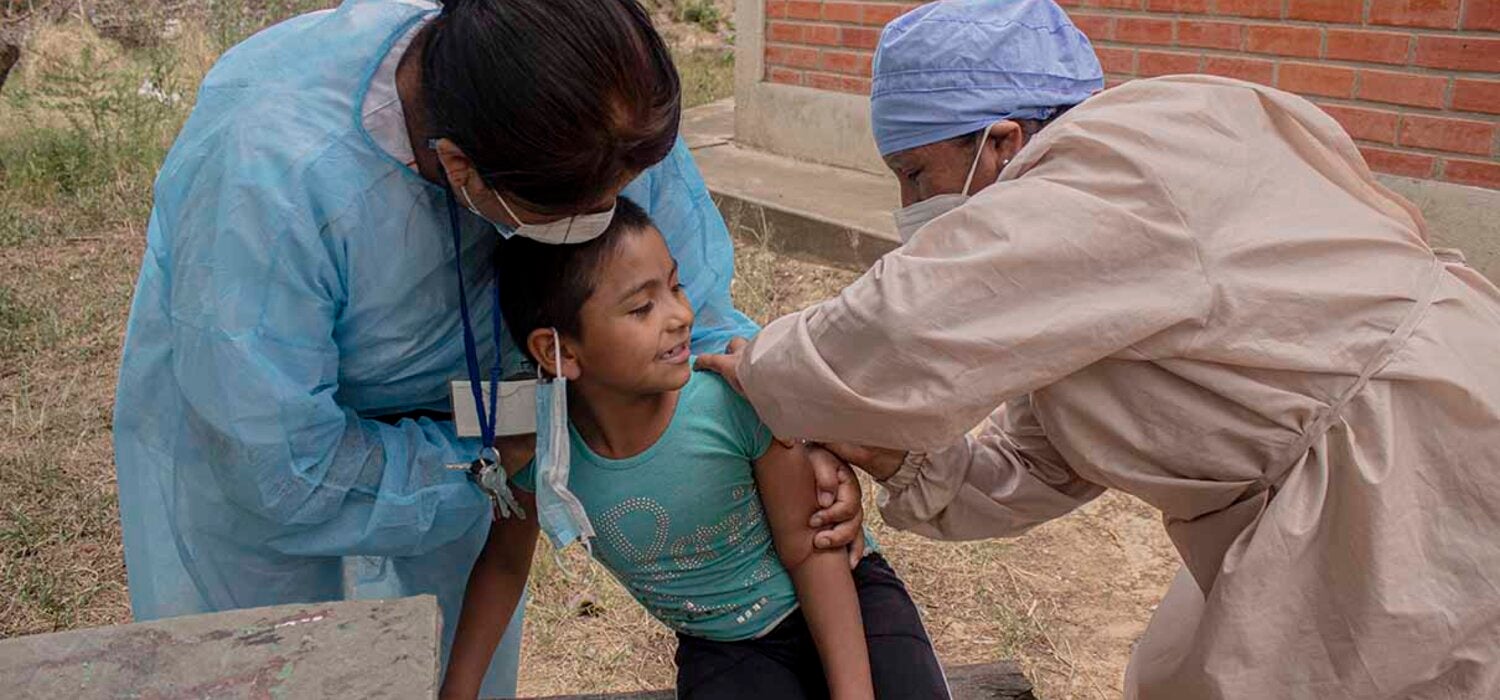Tarija, in southern Bolivia, is one of the departments with the highest incidence of cervical cancer, which is the leading type of cancer in the department.
Three out of every 100 women in Tarija have cervical cancer.
Vaccination is the responsibility of the Expanded Program on Immunization (EPI). Before the strict lockdown due to the COVID-19 pandemic, the HPV vaccine was provided every year in educational facilities. But this year it could not take place as normal.
Vaccination teams leave for peri-urban areas
Staff from the Palmarcito Health Center decided to go out in vaccination teams to visit peri-urban and rural areas, to look for any girls who did not receive the vaccine in the first few months of the year
Inter-agency partnerships and vaccinations
Today, the teams are visiting facilities of the nongovernmental organization ‘Educación y Futuro’ [Education and the Future] (EDYFU), where children from disadvantaged families living in the outskirts of the city of Tarija gather.
In a single day, eight girls in conditions of vulnerability can be vaccinated
In coordination with EDYFU staff, eight 10-12-year-old girls, can be vaccinated in just one day
Twenty women died of cervical cancer in 2018
Women in Tarija are diagnosed with cervical every single day. The vaccine will prevent future generations of women from contracting this horrible disease. Eleven-year-old Gladys knows the value of the vaccine and is one of the girls who has received it.
A photograph to remember
Face masks down: but just for the click of the camera. Girls in Tarija receive HPV vaccines. Having fulfilled their mission, the vaccinators leave but will return another time to give the girls their second dose.






